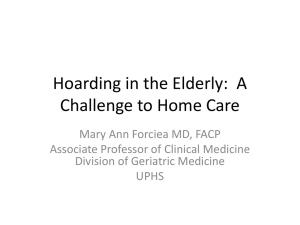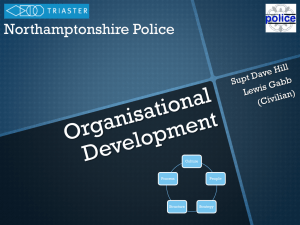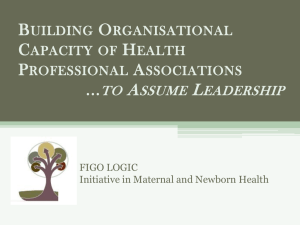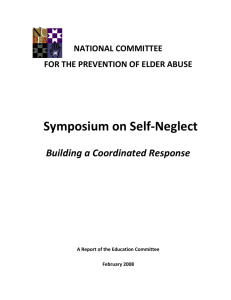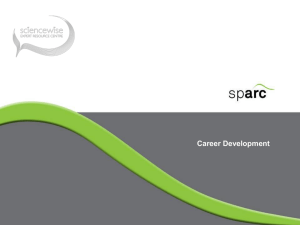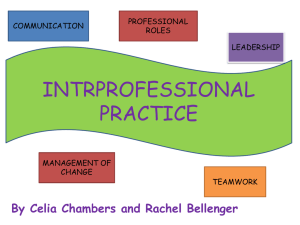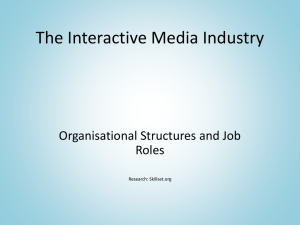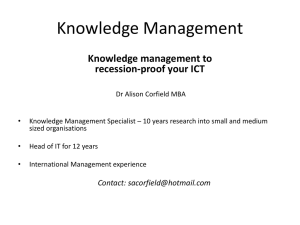workshop 2 Self neglect Suzy B - Birmingham Safeguarding Adults
advertisement
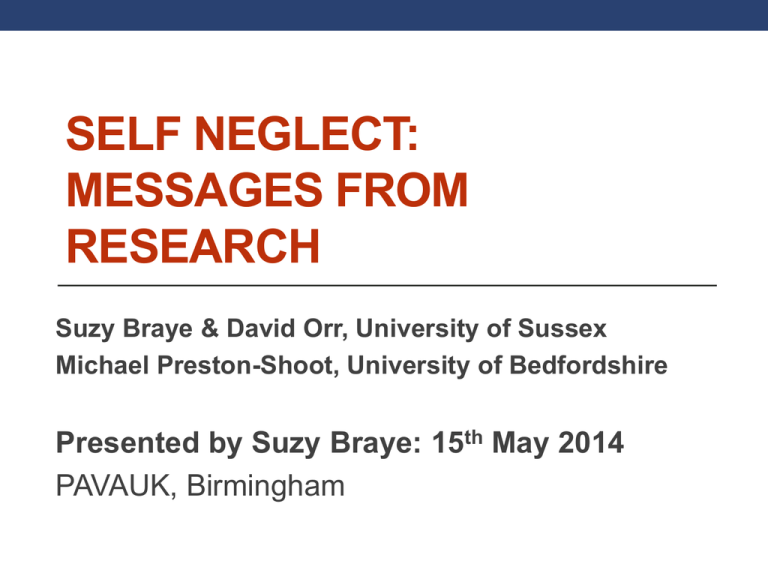
SELF NEGLECT: MESSAGES FROM RESEARCH Suzy Braye & David Orr, University of Sussex Michael Preston-Shoot, University of Bedfordshire Presented by Suzy Braye: 15th May 2014 PAVAUK, Birmingham Sources of research evidence Scoping the concept of self-neglect 2011 Addressing workforce development needs 2013 Review of serious case reviews Exploring self-neglect practice 2013-14 What do we mean by self-neglect? Lack of standard definition – broad scope Lack of self- care • Personal hygiene • Daily needs • Refusal of essential care Lack of care for living environment • Hoarding • Squalor • Infestation To a degree that endangers own or others’ safety, health & well being What causes self-neglect? • No overarching explanatory model • May arise from inability or unwillingness, or both • Influenced by societal and professional constructions of ‘the problem’ Inability Lifestyle choice At best • Complex interplay of association with physical, mental, social, personal and environmental factors • Underlying personality disorder, depression, dementia, obsessive- • • • • compulsive disorder, trauma response, severe mental distress, and/or neuropsychological impairment Diminishing social networks and/or economic resources Physical and nutritional deterioration Once functional behaviours and personal philosophy Attempt to maintain identity and control • Some manifestations have stronger recognition as a disorder (e.g. “hoarding disorder” included in DSM-V independently of OCD) The perspectives of people who self-neglect? • Little previous research done in this area • Emerging themes from the scarce literature • Pride in self sufficiency • Connectedness to place and possessions • A drive to preserve continuity of identity and control • Traumatic life histories and life-changing events • Shame and efforts to hide ‘evidence’ from others • Emerging themes from our study: • Lifelong pattern of behaviour held in balance • Traumatic event disturbs that balance • Escalation to the point that someone else gets worried Service users say … Neglect of self-care Neglect of environment Demotivation: homelessness, health, loss, isolation – selfimage, negative cognitions Different standards: being indifferent to social appearance Inability to self-care: mental distress, physical ill-health, homelessness Influence of the past: childhood, loss, abuse, bereavement Positive value of hoarding: emotional comfort, connection to something, “my family”, hobby, to be appreciated by others Beyond their control: voices, obsessions, physical ill-health, lack of space How can we understand the challenges? Selfneglect per se Mental capacity Organisational & service environments 1. Challenges from self-neglect per se The sheer complexity of self-neglect Understanding what’s going on Lack of training Uncertainty about legal frameworks Engaging with the individual Adapting assessment tools Knowing what works Thresholds for intervention Negotiating value positions Frustration and anxiety Competing moral imperatives Respect for autonomy and self determination Duty of care and promotion of dignity • “I’m not 100% convinced our coroner ... will have heard about the personalisation agenda and independence, choice and control and I think he will, without a doubt, see this as a failing of services and we should have acted. The man had capacity, you know. He was given all assistance but basically he said, ‘look, I don’t want you in my house; I don’t want anything that you could offer me. I’m quite happy living in the manner in which I want to live, and go away’ ... I think it’s a real difficult issue.” 2. Mental capacity affects perception of risk and intervention focus Mental capacity Respect autonomy to selfmanage Respect autonomy but high risk remains Self-care Self-neglect Provide support to contain risk Best interests intervention to reduce risk Mental incapacity Mental capacity • Capacity in the literature involves not only • weighing up information and being able to understand consequences of decisions and actions, but also • the ability to implement those actions • Decisional and executive capacity • “Articulate and demonstrate” models of assessment Decisional capacity Capacity Executive capacity What about mental capacity in practice: MCA 2005 guidance • A person is unable to make a decision if they cannot: • understand information about the decision to be made (‘relevant information’) • retain that information in their mind • use or weigh that information as part of the decision-making process, or • communicate their decision Is there room here for executive capacity? Understanding relevant information This could be seen to include information about the consequences of taking or not taking certain action, and the likelihood of those consequences Using or weighing information “Sometimes people can understand information but an impairment or disturbance stops them using it ... it leads to a person making a specific decision without understanding or using the information they have been given.” In practice… • Decisional capacity is prioritised • The absence of executive capacity may not be taken into • • • • account in determining that an individual has capacity Understanding the need to act, and deciding to do so, may be assumed to imply capability to implement the action Assumption of capacity to make decisions about refusal of intervention may miss the complexity of ‘relevant information’ or ‘using and weighing information’ Capacity to execute simple functions may mask lack of capacity to sequence decisions in the more complex ways necessary to minimise risk An emerging capacity picture over time may not be pursued. 3. Challenges from organisational & service environments Finding an organisational home for selfneglect: “everyone’s, no-one’s, someone else’s business” Outside definition of vulnerable adult: SAB business? Diverse agency cultures thresholds and practices Eligibility barriers to preventive work Workflow patterns based on time limited care management Care pathways to independence that are not achievable Lack of clarity on information sharing No forum for shared decisionmaking Lack of legal literacy in face of a complex legal framework Learning from SCRs Lead coordinating manager Skilled & timely capacity assessments Understanding of available legal rules Multi-agency approach Training informed by research and by SCRs Interface with safeguarding Guidance to staff Practice and policy development Supervision that challenges and supports Effective interventions? No gold standard from the literature Assistance with routine daily living Cleaning as a short term solution only Early intervention to prevent entrenched patterns Harm reduction strategies Combined approaches: MI, CBT, sorting, tasks SRI medication in some cases What’s working in practice? Negotiated Sensitive & wide-ranging assessment Care by consent: start with what can be agreed Support to life transitions Coerced Threat to tenancy Environmental health Leverage to secure engagement Relationship building: piecing together understanding of the unique experience and working towards trust-based acceptance of intervention • “You have to really get to know someone before you know what self-neglect is about.” • “People who self-neglect don't want lots of people doing things for them, but support to get by…we’re mindful that if we push people to do things they don’t want to do, we will get nowhere at all because they’ll shut the door.” • “Respecting lifestyle choice isn’t the problem; it's where people don't think they’re worth anything different, or they don’t know what the options are.” What service users highlight - engaging with professional help • Already wondering: spot the moments of motivation, good timing • Finding help is difficult: lack of knowledge, accommodation • No choice (state of home) but directiveness may be seen as pushy & unhelpful • Right kind of input: not intrusive, gender, cost, encouraging, hands-on, person-centred, going the extra mile, reliable, compassionate, understanding What service users highlight – effective interventions • Support with clearing if sensitive & participatory; care • • • • • • • • packages that are relevant to perceived needs Mental health services, such as CBT or counselling, to tackle deep-rooted issues Links with other service users Relationship-building: connection, emotional literacy Meaningful activity Carer support Accessing advocacy and resources, such as benefits Re-housing Information What practitioners highlight • Can feel lonely, helpless, frustrating and risky • Strong management support and multi-agency collaboration • • • • • • crucial Places and spaces to discuss ethical conundrums, such as meaning of consent & duty of care – panels, meetings, case conferences Time to build relationships – finding the right person & levers to engage Work with neighbours and family too Qualities of persistence, patience, resilience, limited expectations, respectful curiosity Good understanding of motivational interviewing, capacity and law Little victories, baby steps Workforce and workplace priorities … Staff development and learning, building understanding and capability Organisational and interagency, systems to support practice, shared assessment and decision-making …to develop: Organisational culture and practices that give practitioners the space and time for building relationships of trust Flexibility in what are expected as case outcomes Training and practice development mechanisms to facilitate key aspects of effective practice Interagency systems for shared assessment, intervention, risk-management and decision-making Further information on the research • Braye, S., Orr, D. And Preston-Shoot, M. (2011) Self-Neglect and Adult Safeguarding: Findings from Research. London: SCIE. http://www.scie.org.uk/publications/reports/report46.pdf • Braye, S., Orr, D. and Preston-Shoot, M. (2011) ‘Conceptualising and responding to self-neglect: challenges for adult safeguarding’, Journal of Adult Protection, 13, 4, 182-193. • Short presentation on the 2011 research findings http://www.communities.idea.gov.uk/comm/landing-home.do?id=2962596 • Braye, S., Orr, D. And Preston-Shoot, M. (2013) A Scoping Study of Workforce Development for Self-Neglect. London: Skills for Care. http://www.skillsforcare.org.uk/NMDS-SC-intelligence-research-andinnovation/Research/Research-reports/Workforce-development-for-selfneglect.aspx Professor Suzy Braye, s.braye@sussex.ac.uk; Dr David Orr, d.orr@sussex.ac.uk; Professor Michael Preston-Shoot, michael.preston-shoot@beds.ac.uk
